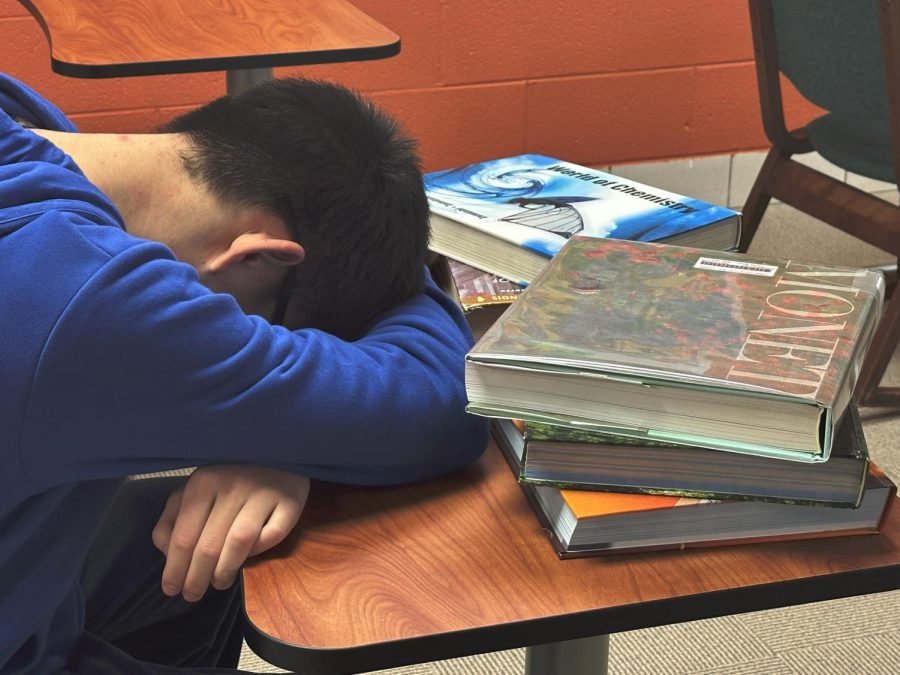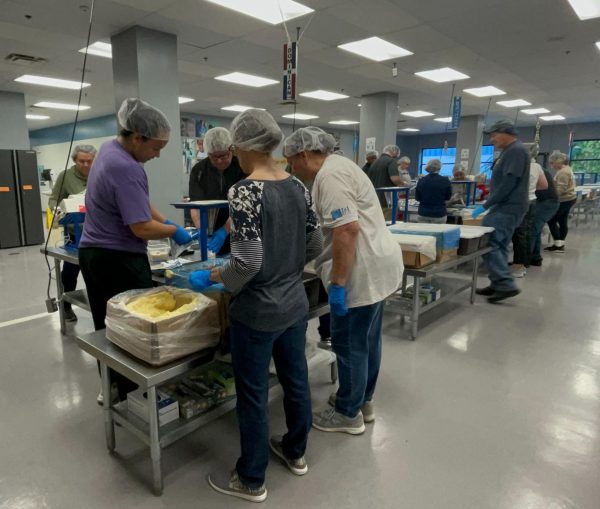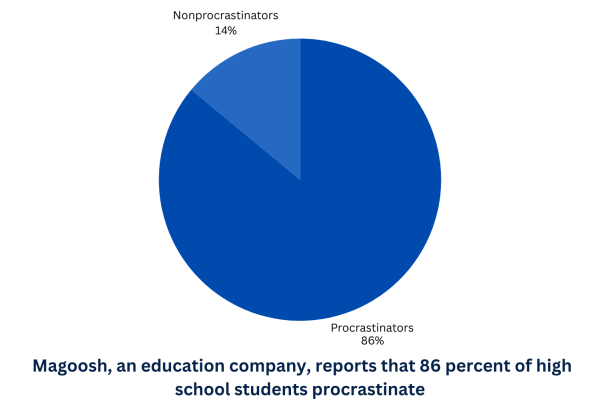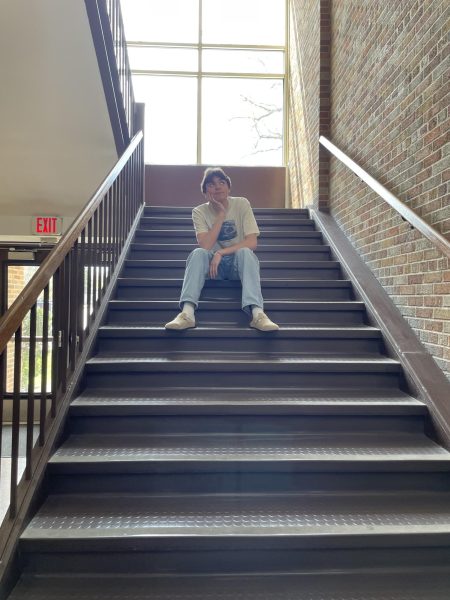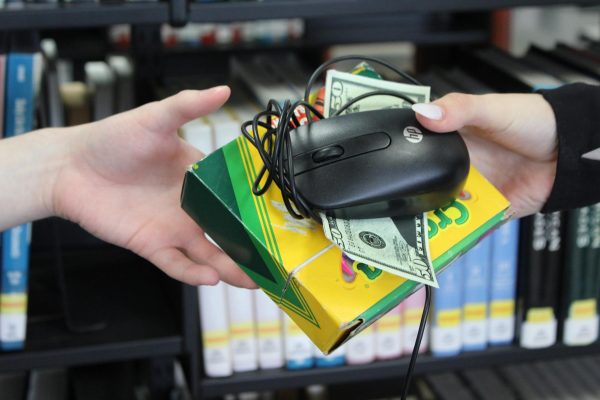Burning Bright… Or Burning Out?
A Student Rests their Head on a desk exhausted by the weight of school work. Overwork has been proven to have negative effects on the human body.
Avoid high wattage, turn the light switch on and off infrequently and do whatever you can to prevent overheating: These are all things many people know to implement when trying to avoid burning out lightbulbs too fast – but how many of us think about burnout in people?
How often have we stopped to consider what it might look like if we overwork ourselves to the point where we crash?
What causes burnout?
The life of a 21st-century teenager is incredibly multifaceted – students experience burnout as they try their best to balance athletics, extracurriculars and relationships with peers, teachers, friends and family on top of a plate already heavily loaded with academics.
Burnout is a mental state resulting from working overtime and pushing oneself past their limits as one works. Students often develop burnout because they do not give themselves time to recharge and relax between homework, study sessions and extracurricular activities, something researcher and writer Stephen Covey calls “sharpening the saw.”.
While some can manage this lifestyle initially, it can get exhausting over time – especially since we often forgo the time we should be using to rest and take care of ourselves to fulfill the expectations placed on us.
Burnout is closely linked to sleep deprivation and negatively affects your self-esteem and perception of the world. Pushing themselves past the limit, students often stay awake until 2AM to finish an essay or cram for a test.
Overworking yourself can cause physical and mental issues like a weakened immune system, mood disorders, and deficits in cognition and memory – this strain prevents us from performing our best. It makes us judge our self-worth by our performance and comparisons with the people around us.
Overcoming Burnout
Teachers hold immense importance in a student’s academic career – and with that comes great responsibility. So when a student struggles with burnout, being supportive can show them that they care and that while grades matter, they’re not worth jeopardizing your physical and mental health.
Although working hard and achieving our goals is in our hands, it is challenging to reach great heights without support; even a little understanding and encouragement can go a very long way.
It is not only the support of others that impacts us but the way we treat ourselves. While dreaming big is essential to growth, unrealistic goals and expectations simply set oneself up for failure – and burnout.
Expecting too much from yourself pushes you to work more than you can; if you fail, it negatively impacts how you see your capability and talent. Unrealistic expectations are like expecting a lightbulb to flash like a strobe light and being disappointed when it burns out after you use a ridiculously high voltage.
Unlike lightbulbs, however, people are strong and versatile. Burnout is challenging to experience, but overcoming it is not at all impossible.
An excellent way to combat burnout is to give yourself time to relax. This can take the form of treating yourself to your favorite dessert, going out with your friends, or even simply taking a nap.
Activities like meditation, exercise and eating healthier are scientifically proven to improve your mental and physical state.
Another way to combat burnout is to have a schedule and execute it; knowing when to do something ensures you have enough time and balance. It will be easier to identify if you are overloading yourself with activities.
Regarding academics, developing healthy study habits is also essential as they can ensure less difficulty while studying for tests and completing assignments.
Lastly, we must remember to be kind to ourselves and acknowledge that mistakes are okay. Accepting that we are not perfect and cannot expect ourselves to be so is crucial in overcoming struggles with burnout.
Burnout is an unfortunate part of life and a struggle many encounter, but it is not the end of the story.
Burning out doesn’t mean we are incapable of shining again. We all constantly undergo cycles of growth and change throughout our lives, and burnout can be a part of that. We have to acknowledge that asking for help is okay and not shameful. If you are facing a difficult time, remember that reaching out to counselors, parents, and teachers is always an option. Growing together and helping one another out in a state of distress is a part of being human.
If you have experienced or are experiencing burnout, you are not alone, and your struggles are valid. We are stronger than our experiences with burnout, and we all can rise above them and move forward in life.



